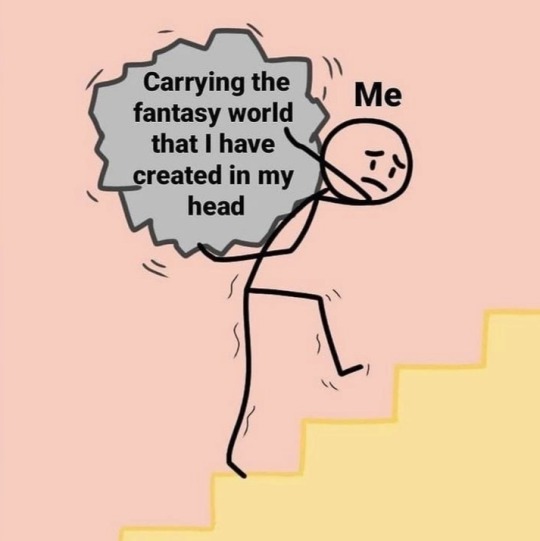Text
Some resources for those writing medieval-type stories:
list of medieval jobs
more medieval jobs
lords of the manor
ladies of the manor
medieval ladies
medieval weapons
medieval names
more medieval names
guide to medieval terms
more medieval terms
how to write sword-fight scenes
armor
70K notes
·
View notes
Text
You know the problem with reading a book? You get hooked and then it ends and you feel sad
86K notes
·
View notes
Text
Writer Bingo
What’s your final score? 👀

445 notes
·
View notes
Text
intense writing things (exposing things that writers do)
discovering a major plot point of their WIP halfway through and just adding it in with any other changes, telling themselves they'll "go back and revise it later"
lots of staring at a blinking cursor hoping it'll magically write
abandoning their main WIP at a crucial part to write the mini WIP that floated into their thoughts
thinking more about what they're going to write than actually writing
complaining about their favourite character dying off in a novel while simultaneously creating a character whose death will be painful for the reader in their WIP
— (iykyk)
can only write during a certain (extremely inconvenient) time of day
"look I wrote another 10 words" to anyone who will listen
knowing the entirety of the plot but nothing at all when you open a new paper
knowing the exact definitions of the most obscure words but forgetting the simplest things
writing a sentence, being proud of it, finding it again while editing, being really proud, sending it to your friend, realizing it's from Percy Jackson or some other popular equivalent.
smiling in pain when your friend asks you about the wip you abandoned months ago ("I know I will finish it this time")
6K notes
·
View notes
Text
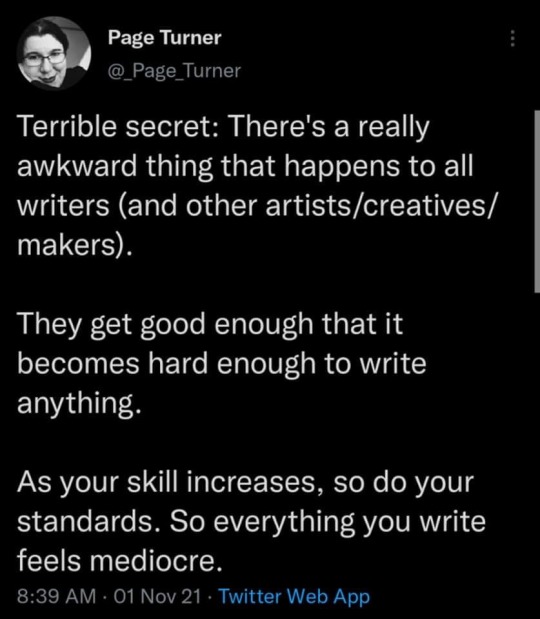

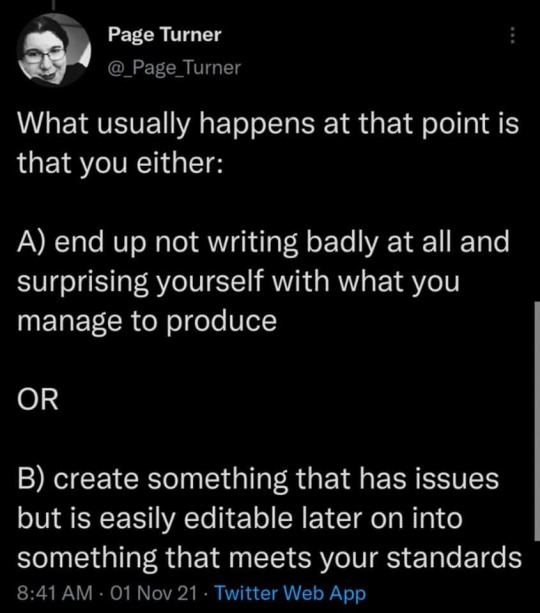

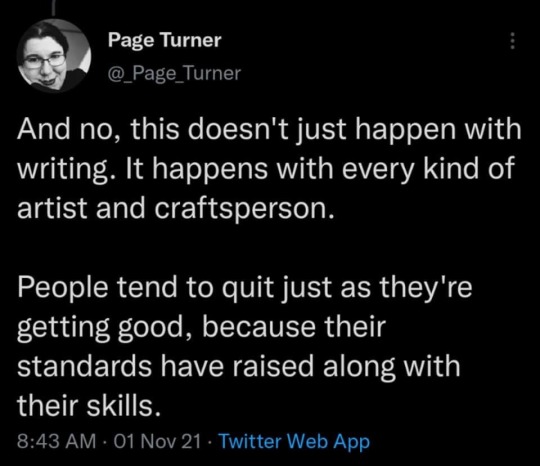
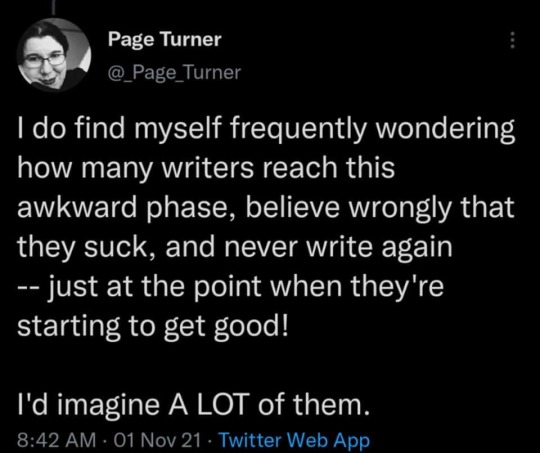
This hit home, and I think it will resonate hard with all my creative friends, here. You are amazing and brilliant and I BEG YOU to keep creating!! ❤️❤️❤️
37K notes
·
View notes
Text
Writers going psspsspssp to their brains trying to lure them into writing
13K notes
·
View notes
Text
yes i have a thing for self-loathing fictional characters being loved and in the process learning to love themselves and no that does not imply anything about me personally as a person i swear
44K notes
·
View notes
Text
not as bad as writer's block, but still pretty bad: when you have an idea you're excited to get out of your head but you can only write it really really really slowly
49K notes
·
View notes
Text
that moment when you are writing a cool ass line and suddenly you forget the one word that made the line cool to begin with
2K notes
·
View notes
Text
Some critical rules for writing coherent genre fiction, courtesy of my writing teacher, who is very wise. I don't pretend to have mastered all of these, but their application can do wonders for a story, their lack can cripple it:
Employ the causal chain - every action must be connected to what comes before and after. Each action and beat needs to have impact. They don't all need to be shown but the author needs to know what they are. It is impossible to build suspense without this principle. Things can't happen "just because" or there's no reason for the audience to become engaged with your sequence of events or do things like make predictions.
All subsequent rules follow from this principle.
When showing a new type of fictional magic or science, you must show it work before you can show it break.
For example, if a character has the ability to summon objects into their hand, we need to see them do so successfully and see how it works, before we see it break at a critical moment during the climax. Otherwise, the audience can't be expected to follow why this situation is unusual because they don't know how it works during normal circumstances.
When claiming a character is good at something, you must show them succeeding at it before you show them failing at it during a moment of pressure. Otherwise, we don't believe you when you establish your character's competence or badassery.
For example, when saying your character is an excellent military commander, we need to see them win a fight using those skills and tactics. We can't open with a fight they lose, or else the character and author lose credibility. By all means, show the experienced hero/military leader/ruler/assassin/mage etc break down during a moment of intense pressure, fall down sobbing in terror at a truly insurmountable foe, or otherwise fail to meet the moment, but don't do this before we've seen them succeed at least once, or the moment loses impact.
During the build-up of tension, coincidences should hurt the hero and help the antagonist. This plays into the causal chain rule. Coincidences that help the hero feel cheap. Coincidences that help the villain raise the tension.
Every beat, whenever possible, should be connected to conscious action by central characters (hero, love interest, or villain). The more events are connected to purposeful action by key characters, the more satisfying the causal chain for the reader.
Avoid things that happen "just because" whenever possible. You can have one or two, sure, but the more often things happen "just because" the less interesting the story is, especially if those "just because" moments are core to the story. Fiction is not real life. Audiences are drawn to stories where purposeful actions dictate the success or failure of the characters.
7K notes
·
View notes
Text
Me thinking really hard about random
stupid details about my own ocs story:

20K notes
·
View notes
Text
Writing a series means being obsessed with a character for the second book while writing the first.
421 notes
·
View notes


